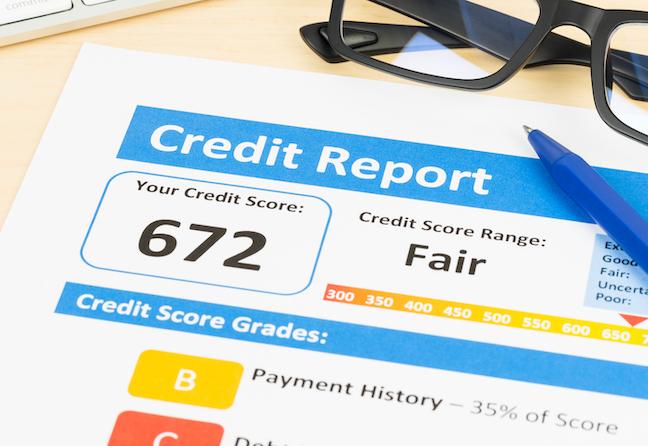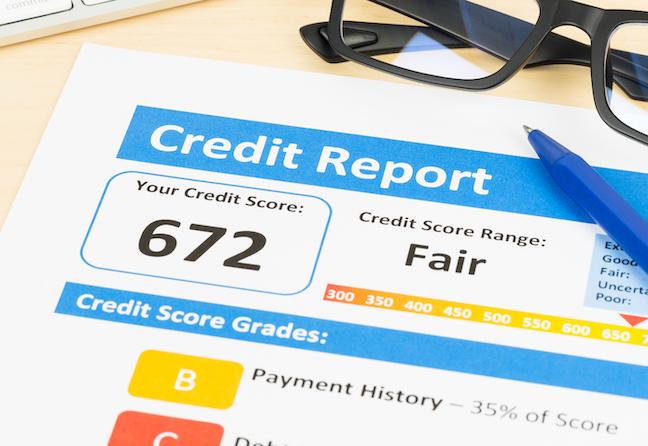The complete credit score guide


Understanding your credit score is essential to making informed financial decisions. Learn how credit scores are calculated, what affects them, and how they impact your ability to qualify for financing.
Key takeaways
Payment history, debt levels, credit mix, credit age, and new accounts all influence your overall credit score.
FICO and VantageScore use similar criteria with slight differences. Both scoring models prioritize timely payments and low credit utilization, though they weigh categories differently.
Higher credit scores typically lead to more favorable rates and more financing opportunities.
It’s important to stay current on payments, keep balances low, and check your credit report regularly.
Understanding Your Credit Score
In general, your credit score is a culmination of the following factors:
Number of accounts you have
Types of accounts
Your used credit vs. your available credit
Length of your credit history
Your payment history
These indicate to lenders your creditworthiness, or your ability to make payments on time. The more diligent you’ve been to make payments promptly and keep debt under control will result in a higher credit score. Conversely, late payments or default on loans will cause a significant drop in your score.
How the Credit Scoring System Works
There are three major credit bureaus responsible for generating credit reports – Equifax¹, Experian¹, and TransUnion¹. Other companies, like Fair Isaac Corporation (FICO)¹ and VantageScore¹, review your credit report, evaluate your credit risk level, and assign a numerical score based on these factors.
FICO Score Breakdown
Your FICO score is comprised of information from five categories: payment history, total debt, credit history, credit mix, and new accounts and requests. FICO scores range from 300 on the low end to 850 on the high end.
So, what is a good FICO score? It depends. myfico.com says the following:
Exceptional 800+
Very Good 749-799
Good 670-739
Fair 580-669
Poor below 580
Payment History
Payment history has the biggest impact on your credit score, making up 35% of your total FICO score. Consistently paying down your balance on time is the single most important thing you can do to show your creditworthiness to lenders.
Amounts Owed
Total amounts owed (also referred to as credit utilization ratio) make up 30% of your score. Maxing out credit cards, having too many credit cards, or taking out too many loans will affect this section of your credit score. Creditors look at your ability to pay and your established credit history. They also look at how much credit you’ve used out of the total credit extended to you.
You can use this formula to figure out your credit utilization ratio:
Divide the total balance of all your credit cards by the total credit limit of all your cards.
Multiply by 100 to calculate your credit utilization ratio as a percentage.
Try to keep your credit utilization ratio below 30% to avoid negatively impacting your score.
Variety of Credit Types
Your credit mix makes up 10% of your score. This indicates the different types of credit you have, from unsecured credit cards to installment car loans. Successfully managing a mix of credit types may improve your score
Credit History
Your credit history contributes 15% to your overall credit score. A longer, established credit history, can improve your score. Furthermore, if you have a strong, positive credit history, a small setback will likely not impact your credit as much once you clear it up.
Negative status items such as late payments, bankruptcies, and collection accounts will generally be reflected on your credit report for 7 to 10 years before being dropped.
New Accounts & New Credit Requests
This section comprises 10% of your score. Frequent inquiries regarding new accounts can have a negative effect on your credit. Most credit scores are not affected by multiple inquiries from mortgage, auto, or student lenders within a short period of time. Typically, these are treated as a single inquiry and will have minimal impact on your credit score.
VantageScore breakdown
Your VantageScore is based the following factors: payment history, credit age and mix, credit utilization, balances, recent credit card applications, and available credit.
Here’s a breakdown of VantageScore:
Excellent 781-850
Good 661-780
Fair 601-660
Poor 500-600
Very Poor 300-499
Payment History
Like FICO, payment history has the biggest impact on your VantageScore, comprising 40% of your total score. Paying down your balance on time is the most important factor.
Depth of Credit
This segment combines credit age and mix, making up 21% of your total score. It looks at the different types of credit you have and how long you’ve had those lines of credit. Similar to FICO, they want to see that you can make payments on different kinds of credit over a long period of time.
Credit Utilization
Credit utilization (how much you currently owe divided by your credit limit) makes up 20% of your VantageScore. The less available credit used makes for a better score.
Balances
11% of your VantageScore looks at the total balances on all your credit accounts. Lenders like to see low balances.
Recent Credit Requests
Recent activity in credit accounts is 5% of your VantageScore. Recent credit card applications or personal loan requests are considered credit requests and may have a negative effect on your credit.
Available Credit
At 3%, available credit is the smallest portion of your VantageScore. This segment looks at how much credit you have available on your revolving credit accounts. While it doesn’t have a major impact on your score, having a larger amount of available credit could slightly raise your score.
How to Monitor Your Credit Score
It’s a good idea to keep an eye on your credit score and review every few months. You can get a free credit report once a year from AnnualCreditReport.com. Take advantage of this free service to ensure the information on your credit report is accurate and up-to-date.
There are also credit monitoring companies that will monitor your credit for a monthly fee. They will notify you of any suspicious activity they discover, and you can typically get your credit score at any time as part of this service.
How Your Credit Score Affects Your Financial Health
When you apply for a credit card or a loan, the lending company will pull your credit report to see if you’re a good candidate for the loan or credit offer. Your interest rate may vary depending on your score. While your credit score may only be part of the lender’s criteria, it’s a crucial component. Look for opportunities to prove yourself and make your payments promptly to build a positive credit history.
Not only do mortgage lenders, banks, and credit card companies review your credit score, but landlords, cell-phone companies, and employers may also look at your credit history.
10 Ways to Improve Your Credit Score
Strong credit scores result in better financing options. If you’re looking to improve your credit score, here are a few tips:
Get current on missed payments.
Make payments on time.
Pay delinquent accounts as soon as possible.
Keep unused credit card accounts open.
Work with your creditors on payment options and terms.
Keep your balances low.
Look into a rent-reporting services to get payments added to your credit report.
Apply for credit or loans only when necessary.
Consider debt consolidation – it may be a way to simplify or lower payments.
Review your credit report on a regular basis and challenge incorrect items.
Final thoughts
Your credit score is a vital piece of your overall financial health. In many ways, it can affect your daily life. By understanding how the score is calculated and its various components, you can build and grow your credit with confidence.
¹Snap Finance is not affiliated, associated, authorized, endorsed by, or in any way officially connected to Equifax, Experian, TransUnion, Vantage Score, Fair, Isaac and Company (FICO), or any of its subsidiaries or affiliates.